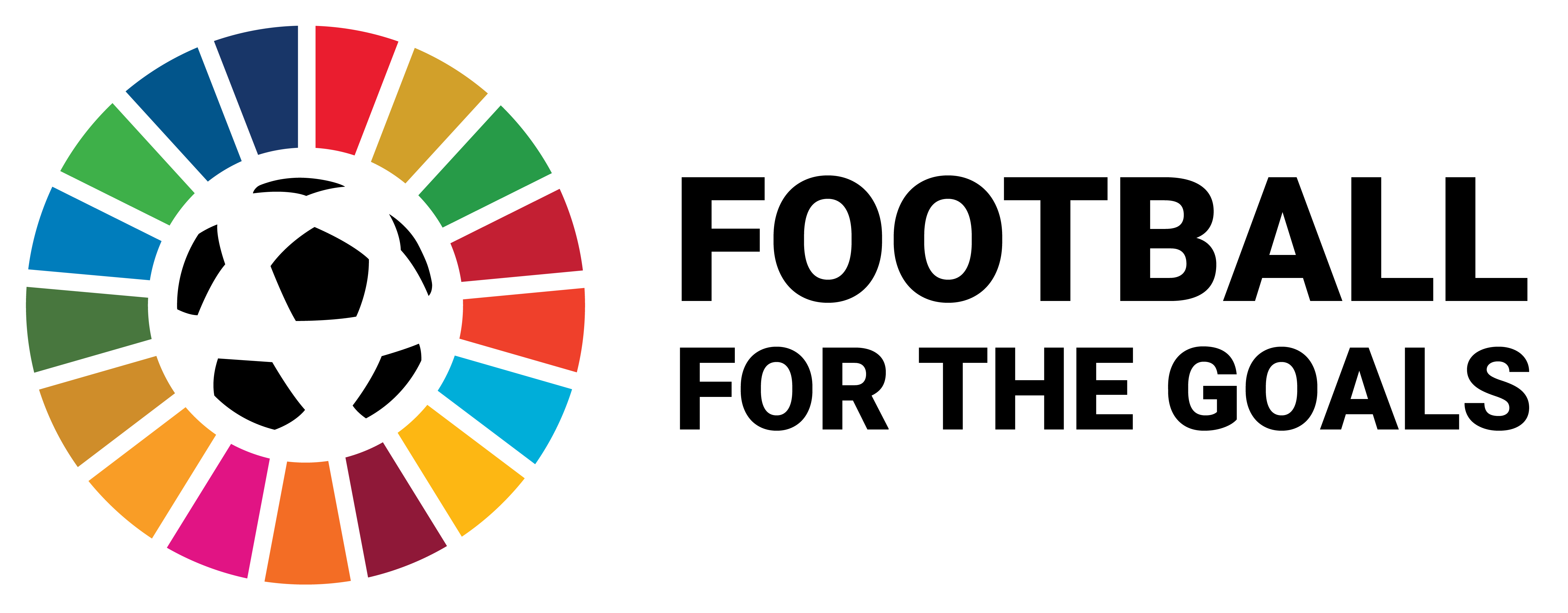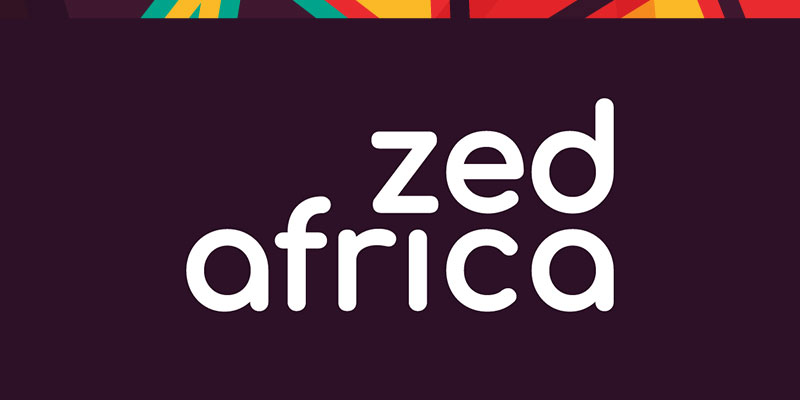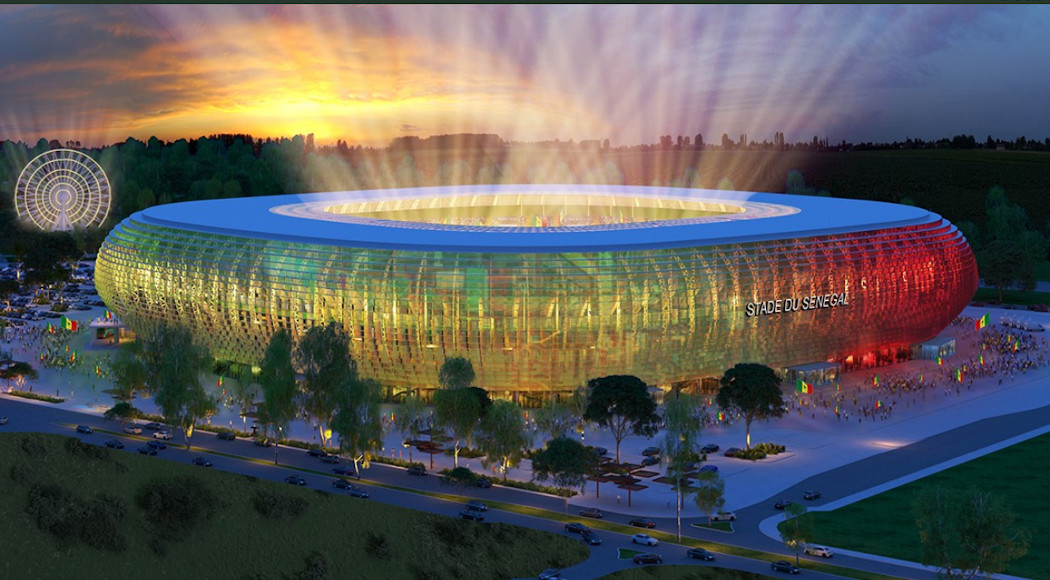
Next week we kick off season five of the Africa Football Business Show themed Transforming our Game.
Following a relatively successful AFCON 2022, many have hailed the tournament as having ushered in a new era in African football. AFCON 2022 was significant in many ways. The biennial tournament was held under difficult circumstances, including the COVID-19 pandemic and resistance or reluctance by European clubs to release African players for the showcase. The host country, Cameroun, had also struggled to get the infrastructure ready, not to mention the election of a new president a month before kick-off, something some consider a silver lining in the cloud.
AFCON 2022 was an exciting event with a well-executed opening ceremony at the newly-built Olembe Stadium. The matches were also of good quality, a significant improvement from previous tournaments for those with a keen eye for football. Noteworthy were the performances of small nations like the Gambia, Comoros, Ethiopia and Cape Verde, who displayed good football, standing toe-to-toe with the traditional powerhouses. Early exits by defending champions Algeria and tournament favourites Nigeria meant the Mane-Salah fan club was always engaged, Klopp’s remarks notwithstanding.
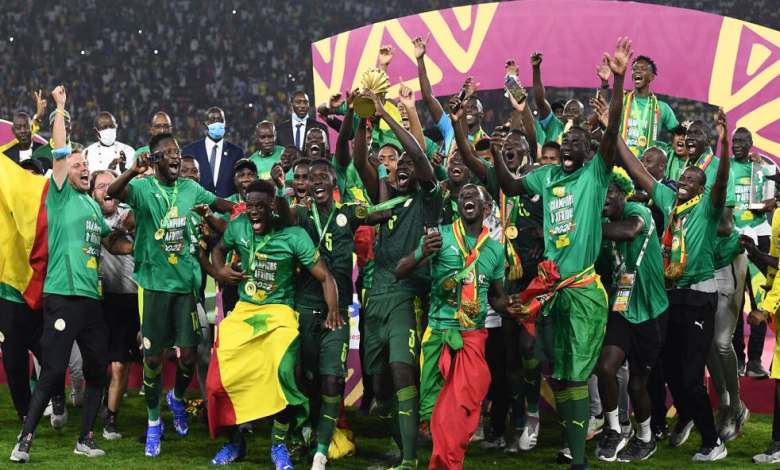
The Lions of Teranga Champions of Africa. Photo Courtesy
A Tragedy
However, a thick cloud hangs over the Olembe Stadium, AFCON 2022 and African football. Eight people lost their lives in a stadium stampede during the round-of-16 match between Cameroon and Comoros. Despite this tragedy, the tournament still went on, with many commentators saying should it have happened anywhere else in the world, the event would have been cancelled or suspended at the least. It is still unclear what happened, and while the organisers have taken ‘shared’ responsibility, we wait to see if anyone will be held accountable. It begs the question do we value the lives of our people? Has football in its commercialised form become more important than life?
The responsibility (and accountability) issue dominated the aftermath of the tragic incident, bringing to light a long talked about topic in global football/sports governance, the relationship between football administration and governments. The tragedy at Olembe stadium and its handling demonstrated that African football is yet to embrace the needed professionalism in its management and administration. Also, in a previous interview on The Africa Football Business Show (episode 2 in August 2020), David Goldblatt observed accessibility and crowd management issues at African stadiums.
Transforming our Game
Despite the relative success of AFCON 2022, Africa still has a long way to go to achieve its potential in football and sports in general. The progression of African talent to the top of world football, as evidenced by the number of returnees at this year’s tournament, has not been translated to progress on the continent. African football requires a transformation. There are underlying problems or causes of organisational pain that need to be addressed, and for this to happen, they must be correctly understood.
Even with football being a multibillion-dollar industry, the African football industry lags far behind the European football industry. Lately, all other continents seem to be progressing much faster than Africa. The lack of progress has been attributed to, among other things, weak leadership and governance and lack of investment, resulting in the migration of players abroad and low quality of local competitions.
Leadership and Governance
Football leaders and other key stakeholders can use this opportunity to address these causes in ways that fundamentally alter the paradigm of football in the continent. AFCON 2022 was able to run to the end with millions engaged worldwide, showing that the continent is capable. Many felt that Samuel Eto’o largely influenced the decision to proceed with the tournament amidst calls for postponement from football stakeholders in Europe and Africa. Is Eto’o the kind of leadership the continent needs? He is confident, ambitious and has a global appeal, owing to his illustrious playing career.

Newly-elected FECAFOOT President Samuel Eto’o. Photo Courtesy
Happening on the sidelines of the biennial showcase were talks regarding the proposed African Super League, a brainchild of FIFA President Gianni Infantino. More information is now available about the tournament, which will most likely start in September 2023. Issues have been raised about a similar upstart having failed to kick off in Europe. Further, it seems FIFA will have a considerable role in the tournament’s organisation meant to feed into another FIFA proposal – an expanded Club World Cup. Critics of Patrice Motsepe’s tenure as CAF president have questioned his ability to drive an African agenda in the development of African football. Is CAF independent? The proposed biennial World Cup has aggravated these concerns after African FAs backed Infantino’s plans, which could mean AFCON moves to a four-year cycle.
Investing in Football – Who?
The justification for these proposals has always been more money for football development (in Africa). While this could be true, the reality is that resources and power continue to be concentrated at FIFA/Europe. At the same time, CAF/Africa struggles to build the capacity to manage football on the continent effectively. As of December 2018, Africa was only utilising 32% of FIFA development funding. The international football governing body withheld 45.6 million dollars.
According to CAF Secretary-General, who was then FIFA Director Member Associations & Development for Africa and Caribbean, “Africa has 54 member countries, but only 25 countries have had access to this vital support. It’s tough because problems ranging from a failure to present tailored projects, administrative issues, inability to provide valid documents to leadership crisis have deprived 19 other African countries.”
If FIFA cannot invest in its MAs, how much can we expect from governments and the private sector in Africa? There needs to be a radical shift in how football is governed and organised globally to allow countries to develop their capacities with the support of local and international stakeholders. The current setup has proved inadequate, especially in Africa, which continues to be almost entirely dependent on FIFA.
Season 5 – Transforming our Game
Africa needs to take ownership of its football development. Football in Africa requires a transformation; hence the theme for Season 5 of the Africa Football Business Show, Transforming our Game.
The proposed topics for season five of The Africa Football Business Show:
- Transforming our Game (SP) 3rd March Register
- Africa Football Business Summit (SS) 24th March
- Leveraging Football Events 31st March
- A Judicial System for Africa’s Sports (SS) 14th April
- Football Diplomacy in Africa – From Interference to Collaboration 28th April
- Sponsorship and Africa’s Economy – Engaging the Private Sector 5th May
- Supporting Grassroots Football Communities 19th May
- Building Sustainable Sports Facilities 26th May
- Understanding and Engaging Football Fans Across Africa 9th June
- Enhancing Transparency and Accountability in Football Organisations 23rd June
- Piecing together Africa’s Football History (SS) 30th June
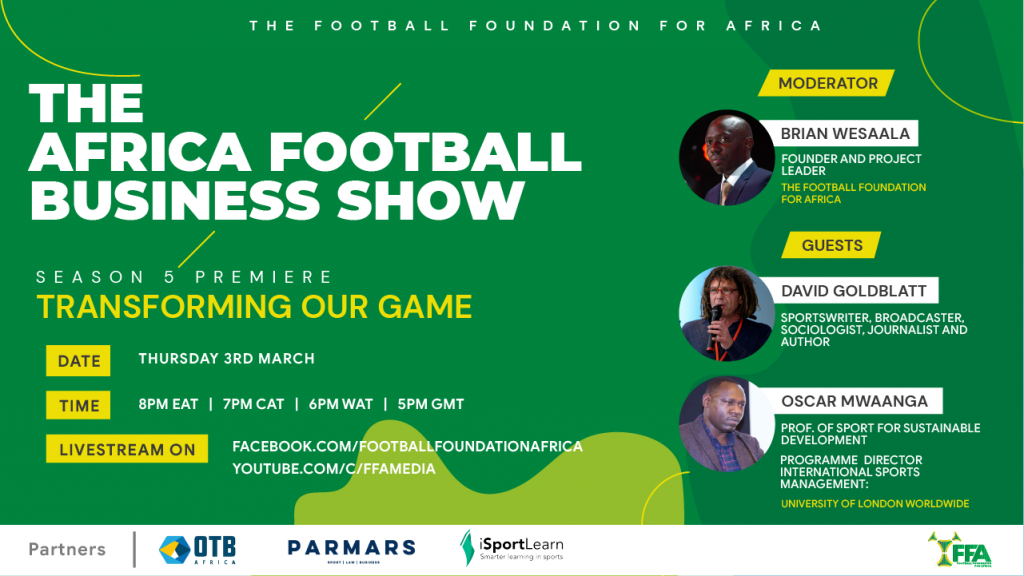
For companies looking for an affordable advertising platform with a broad reach, The Africa Football Business Show is an online educational programme that brings together viewership and experts from across the continent and beyond to discuss developments in the world’s most popular sport with a focus on Africa. Contact us at media@footballfoundation.africa or +254 794 587 100.
 Back to Blog
Back to Blog 